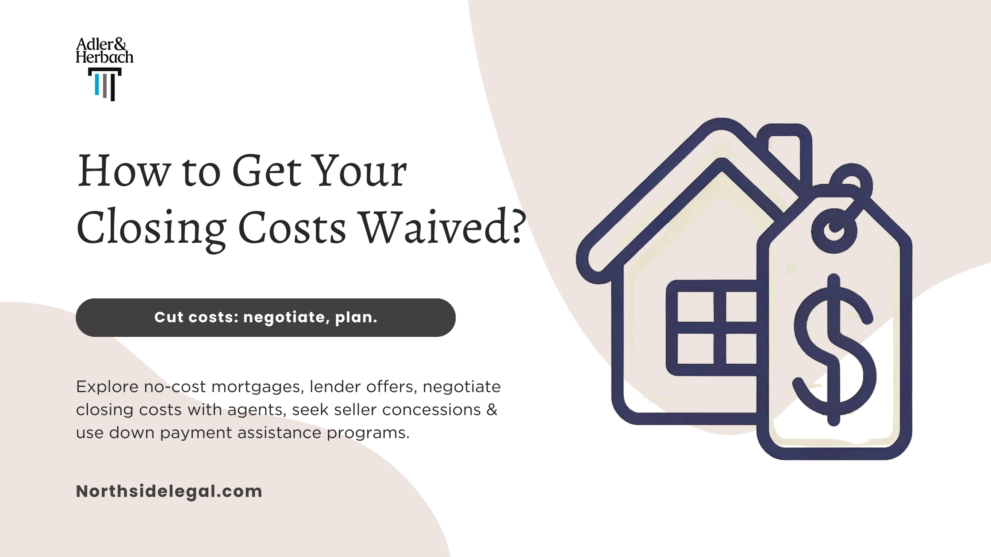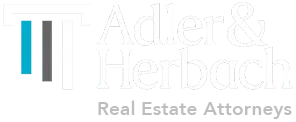Buying a house is an exciting milestone, but it comes with substantial upfront costs. Closing costs alone can set you back thousands of dollars in fees for services like appraisals, loan application and origination fees, inspections, attorney fees, taxes, insurance and more. The good news? With some strategic planning and negotiation, you may be able to get your closing costs partially waived.
How to Get Your Closing Costs Waived?
To waive the closing costs, savvy home buyers can utilize no-closing cost mortgages, lender offers, negotiation with agents, seller concessions and consider down payment assistance programs. Other useful strategies include paying discount points for a lower rate and seeking lender credits.

Here are 9 proven tips for slashing expenses when buying a home.
1. Opt for a No-Closing Cost Mortgage
The simplest route is getting a no-closing cost mortgage that includes all lender fees in the loan amount. You may pay a slightly higher interest rate over the loan term, but you won’t have out of pocket lender fees at closing.
2. Shop Around for Lenders
One of the biggest factors in closing costs is the origination fees charged by your lender. Don’t just go with the first mortgage company you find – shop around and compare quotes.
Often lenders have the ability to waive or discount fees to win your business. Leverage multiple offers against each other and make lenders compete on rate and closing costs.
3. Negotiate with Your Real Estate Agent
Speak with your real estate agent to see if they will offer to credit you a portion of their commission to help offset your closing costs.
Some agents may be willing to discount their commision, particularly if you are an easy client or they get most of their business through referrals. Be reasonable and polite when you ask.
4. Ask the Seller for Concessions
Sellers can agree to “seller concessions” where they offer you a credit to cover all or part of the buyer’s closing costs. This scenario allows the seller to proceed with the sale, while helping you get into the home. Make the request with your initial offer or as a negotiating point before closing.
5. Pay Discount Points for a Lower Rate
Paying discount points upfront increases your upfront costs at closing, but will reduce your mortgage interest rate, which saves substantially on total interest paid over the life of the loan. Each point usually costs 1% of the loan amount. This investment upfront can get you a lower rate that, over the long term, more than covers the cost of the points at closing.
6. Take Advantage of Down Payment Assistance
Available government and nonprofit programs offer grants, special mortgage products and restricted down payment loans to help first-time buyers cover costs. These programs can offer thousands in assistance for down payments, closing fees and prepaids. Reach out to a HUD-approved housing counselor to explore options.
7. Ask Your Lender About Lender Credits
Also called lender concessions, lender credits are when the lender funds part of your closing costs out of the revenue they earn from originating the loan. While you may end up paying a higher interest rate, this will give you some immediate relief at closing. The amount of available lender credits varies by lender and loan product, so be sure to ask your mortgage broker if any are available.
8. Buy For Sale by Owner (FSBO)
Purchasing a For Sale by Owner (FSBO) home can provide advantages for you as the buyer. Since the seller does not have a real estate agent, they may be more open to offering credits or concessions during negotiations to make up for the commission they would typically pay. This gives you more room to negotiate on price or ask for closing cost assistance.
9. Close at Month End
Interest accrues daily, so schedule closing for the end of the month. This shortens the days of prepaid interest due at closing. Even a day or two difference can add up to some interest savings.
Learn more about
Conclusion
The bottom line is that buyers shouldn’t assume they have to foot the full bill for closing costs. With the right mix of strategies, you can reduce – or even eliminate – the typical 2-4% of purchase price in closing costs. Now you can shift that savings toward your down payment or home upgrades.
Which strategy will you use to reduce your closing costs?


